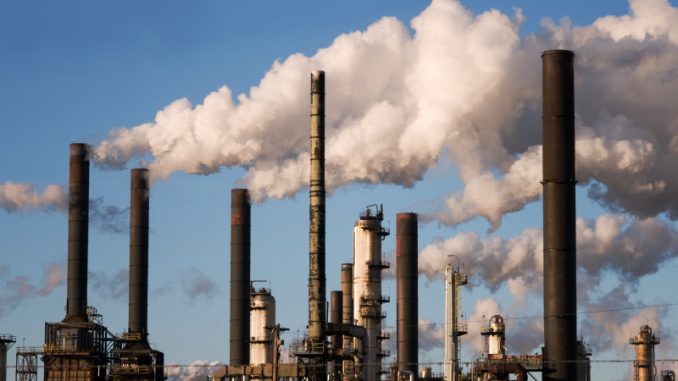
INDIA ON Thursday asked its industries to “urgently and immediately” destroy the most dangerous of all greenhouse gases, called HFC-23, bringing the first bout of excitement at the Kigali meeting of the Montreal Protocol, where countries are inching closer to finalising the second major international climate agreement in less than two years.
In an order issued from the Rwandan capital, where its top brass is currently camping, the environment ministry directed the five companies producing HFC-23, the worst culprit in the planet-warming hydrofluorocarbon family, to destroy the gas through incineration using “an efficient and proven technology”.
HFC-23, also known as trifluoromethane, is produced during the manufacture of a common refrigerant gas called HCFC-22, belonging to the hydrochlorofluorocarbon family. HFC-23 has 14,800 times more potential to cause global warming as compared to carbon dioxide.
The decision comes at a time when India is fending off pressure to agree to an early timeline for phase-out of HFCs, a set of 19 gases commonly used in air-conditioning and refrigerant industry. More than 190 countries are currently meeting in Kigali to finalise a global phase-out of these gases in the next 30-40 years, using the 1989 ozone-saving Montreal Protocol that has been very successful in eliminating ozone-depleting substances.
HFC elimination before the year 2050 is estimated to prevent about 0.5 degree celsius rise in average global temperatures by 2100, something that will help in meeting the target of keeping temperatures under 2 degrees celsius compared to pre-industrial times.
India is the most important country still arguing for at least 10 more years of unhindered growth of its industry before beginning to make HFC-reductions. At the risk of isolating itself, even from traditional climate allies like China, Brazil or South Africa, India has been proposing a different phase-out schedule for itself, thereby effecting a divide within the developing countries bloc.
“It is a question of survival of our industry. We are not taking any negotiating position,” Environment Minister Anil Madhav Dave told The Indian Express.
But countries were very optimistic on striking a deal, possibly by Thursday night itself, despite the possibility of having multiple phase-down schedules for the first time under the Montreal Protocol.
“It will happen for the first time, but it does not violate the framework (Vienna Convention on Protection of Ozone Layer) in any way. It would be within the flexibility that international agreements have. We only want countries to have ambitious phase-out schedules,” Miguel Arias Canete, the EU climate commissioner, said.
India’s demand for a later timeline for itself and other willing developing countries, is the only major point of disagreement at the Kigali talks, and it seemed, a day ahead of the finale, that other countries were willing to accommodate that demand in the final agreement. US Environment Protection Agency head Gina McCarthy said an agreement was “much closer than what is being anticipated”.
Erik Solheim, head of United Nations Environment Programme, however, did attempt to convince India on Thursday morning, while repeatedly invoking Mahatma Gandhi at the beginning of the ministerial meetings.
“Recently, I was in India when Prime Minister (Narendra) Modi decided to ratify the Paris Agreement on climate change… Modi has sent a message to all of us. He had said India will ratify the Paris Agreement on the birthday of Mahatma Gandhi… May be we all need to emulate the lifestyle of this greatest Indian of modern times. We all need to allow ourselves to be inspired by Gandhi. We need to remind ourselves of what he achieved. He stood up against the greatest power of that time… through non-violence and determination… and achieved his goal,” Solheim said.
“We are facing similar challenges (on climate change). If we draw inspiration from him, we can also be victorious as he was. He said we should all act in such a way that we become the change that we want to see in the world. Let us take that as the motto for this conference. Let us all become the change that we would like to see. Can we do that? Another slogan from a different country says, ‘Yes, we can. For sure, we can’,” Solheim said.
Source: The Indian Express

Leave a Reply